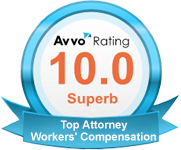Minnesota Work Comp Retaliation Lawyers
The skilled attorneys at Heimerl & Lammers have experience with employment law and understand workers’ compensation retaliation cases. They advocate aggressively for employees like you who have experienced workers’ compensation retaliation. An professional employment law attorney can evaluate your case and determine the best way to safeguard your rights as an employee. For more information about how Heimerl & Lammers can help you, contact us for a free consultation by calling (612) 294-2200.
Work-related injuries and illness pose a threat to Minnesota employees. Indeed, the Minnesota Department of Labor and Injury reported that there were 3.5 workplace injuries and illnesses for every 100 workers in 2020. Additionally, in 2020, there were 76,700 workers with workplace injuries and 17,400 workplace illnesses that the Occupational Health and Safety Administration recognized.
As an employee in Minnesota, you have the right to a safe workplace environment. If you suffer a workplace injury, you have the right to receive medical care, rehabilitation, and compensation for lost wages. Indeed, your employer must provide you with workers’ compensation benefits if you suffer a work-related injury.
It is against Minnesota law for your employer to prevent you from claiming workers’ compensation benefits. It is also against Minnesota law for your employer to retaliate against you—in other words, to punish you—for claiming workers’ compensation benefits. Experiencing retaliation can be an extremely stressful experience. However, Minnesota law protects your right to be free from retaliation when you claim workers’ compensation benefits.
What Is Workers’ Compensation?
If you were injured because of your job, it is important to know about your right to workers’ compensation benefits. If you suffer a work-related injury, the Minnesota Workers’ Compensation Law entitles you to workers’ compensation benefits from your employer. Essentially, workers’ compensation benefits cover costs associated with a workplace injury. Without workers’ compensation benefits, you could be facing expensive medical bills, lost wages, and the costs of rehabilitation. To receive workers’ compensation benefits, you must make a claim after you experience a work-related injury.
What Is A Work-Related Injury?
When you have a work-related injury, you have a right to workers’ compensation benefits. But what is a work-related injury? A work-related injury is an injury that:
- Your employment causes
- Your employment worsens
- Your employment speeds up
Types of work-related injuries include:
- Traumatic injuries
- Repetitive injures
- Occupational diseases
- Certain mental injuries like post-traumatic stress disorder
What Are Common Work-Related Injuries?
Almost any injury can be work-related if your work activities significantly cause or worsen it. However, there are some common types of work-related injuries.
Many work-related injuries arise from slips, trips, and falls. Therefore, the Occupational Safety and Health Act requires that all employers keep their workplaces safe for employees. A typical violation of the Occupational Safety and Health Act occurs when an employer fails to maintain a safe environment, leaving employees vulnerable to slips, trips, and falls. Indeed, workplaces may have unsafe conditions such as wet floors, poor lighting, clutter, and unsafe heights.
Other prevalent types of work-related injuries include:
- Muscle injuries from overuse and physically demanding jobs
- Injuries from broken equipment and falling objects
- Crashes, such as equipment crashes
- Exposure to environmental toxins in the workplace
- Explosions and fire
- Injuries from dangerous animals
- Injuries from altercations with coworkers
If you believe you have a work-related injury, it’s important to speak with a licensed employment law attorney. An professional employment law attorney can help you navigate the process of obtaining workers’ compensation benefits and can help protect your rights.
Is Your Injury Work-Related If It Has Multiple Causes?
Even if your injury has multiple causes, such as work and something else outside of work, you may have a work-related injury. An injury is work-related when your employment was a significant contributing factor to your injury. For example, suppose you have a genetic predisposition for a certain disease. The disease could still be a work-related injury if your work significantly worsened your disease.
What Are Workers’ Compensation Benefits?
If you have a work-related injury, you have the right to workers’ compensation benefits. There are three main types of workers’ compensation benefits. They are:
- Wage-loss benefits
- Medical benefits
- Vocational rehabilitation benefits
What Are Wage-Loss Benefits?
Wage-loss benefits compensate you for the money you cannot earn because of your injury. Types of wage-loss benefits include:
- Temporary total disability
- Temporary partial disability
- Permanent total disability
- Permanent partial disability
Wage-loss benefits also apply if you die because of a work injury or occupational disease. In this case, your dependents receive wage-loss benefits.
What Are Medical Benefits?
The Minnesota Workers’ Compensation Law requires your employer to provide you with medical treatment for a work injury. Types of required medical treatment include:
- Psychological treatment
- Chiropractic treatment
- Podiatric treatment
- Surgical treatment
- Hospital treatment
Suppose you sustained a permanent total disability preventing you from returning to work. In that case, the Minnesota Workers’ Compensation Law states that your employer may pay your family member the reasonable cost of nursing care.
Also, if your injury requires you to use items such as a hearing aid or crutches, your employer must pay for these.
What Are Vocational Rehabilitation Benefits?
Rehabilitation benefits either help you return to your current job or return to work in another area of similar pay. Under the Minnesota Workers’ Compensation Law, you have the right to a rehabilitation consultation to determine what kind of rehabilitation benefits you should receive.
MN Employment Lawyers For WC Retaliation
Were you wrongfully terminated for bringing a workers’ comp claim? If so, a workers’ compensation retaliation lawyer can help protect your rights. Contract an experienced and knowledgeable workers’ compensation lawyer at Heimerl & Lammers for a free, confidential consultation.
What Is The Minnesota Workers’ Compensation Law?
The Minnesota Workers’ Compensation Law protects your rights as an employee to obtain workers’ compensation benefits after you suffer a work-related injury. Under the Minnesota Workers’ Compensation Law, you have the right to claim workers’ compensation benefits from your employer. You also have the right to be free from employer retaliation for claiming workers’ compensation benefits.
Understanding your rights under the Minnesota Workers’ Compensation Law is important, and the knowledgeable attorneys at Heimerl & Lammers understand the Act and how it impacts employees like you.
Does The Minnesota Workers’ Compensation Law Apply To You And Your Employer?
The Minnesota Workers’ Compensation Law applies to all employers who hire people to perform services. Therefore, for the purposes of the Minnesota Workers’ Compensation Law, employees are people who perform services.
Do Underage Employees Have Rights Under the Minnesota Workers’ Compensation Law?
Yes. The Minnesota Workers’ Compensation Law extends to minor employees. Thus, minor employees who suffer work-related injuries have the right to workers’ compensation benefits from their employers. Additionally, minor employees have the right to be free from employer retaliation when seeking benefits.
Do Non-United States Citizens Have Rights Under The Minnesota Workers’ Compensation Law?
Yes. The Minnesota Workers’ Compensation Law covers workers who are not citizens of the United States. Non-citizen employees have the right to workers’ compensation benefits and have the right to be free from employer retaliation when seeking benefits.
Do Volunteers Have Rights Under The Minnesota Workers’ Compensation Law?
The Minnesota Workers’ Compensation Law applies to some volunteers.
Does The Minnesota Workers’ Compensation Law Require Your Employer To Have Workers’ Compensation Insurance?
Yes. The Minnesota Workers’ Compensation Law requires your employer to have workers’ compensation insurance. Employers may either purchase insurance or opt to be self-insured. Thus, your employer should have workers’ compensation benefits for you. If you get a work injury, your employer must provide you with workers’ compensation benefits.
Are You Entitled To Workers’ Compensation Benefits If You Caused Your Injury?
Generally, yes. Minnesota follows a no-fault system for workers’ compensation. First, this means that you do not need to prove that your employer was negligent—in other words, responsible for your injuries—to receive workers’ compensation benefits. You just need to have an injury from working.
Second, you may worry that your employer will attempt to avoid having their insurance pay workers’ compensation. In fact, you may worry that your employer will say your injury was your fault. However, even if you contributed to the injury, you are still entitled to workers’ compensation benefits. So, as long as your injury is work-related, you have a right to workers’ compensation benefits under Minnesota law.
What Is Workers’ Compensation Retaliation?
Workers’ compensation retaliation occurs when an employee makes a workers’ compensation claim, and their employer responds with a negative action against the employee. Types of retaliation include:
- Termination
- Demotion
- Placing greater scrutiny on your work
- Enforcing a rule on you, but not other employees
- Harassment
- Intimidation
- Abusive language
- Threats
- Changing your work conditions unfavorably
- Unpaid overtime or reduced pay
- Loss of hours
- Denying benefits
- Falsifying a performance report
Also, your employer may not intimidate you or pressure you into declining workers’ compensation benefits. For example, you are legally entitled to workers’ compensation benefits if you have a work-related injury, and your employer may not coerce you into opting out of workers’ compensation benefits.
Workers’ compensation retaliation violates the Minnesota Workers’ Compensation Law. If you believe you have experienced retaliation for exercising your right to workers’ compensation benefits, reach out to an experienced workers’ compensation retaliation attorney. In addition, the attorneys at Heimerl & Lammers have experience advocating for employees facing workers’ compensation retaliation.
What Causes Workers’ Compensation Retaliation?
Minnesota law requires your employer to provide you with workers’ compensation benefits if you get a work-related injury. If you get a work-related injury, you also have the right to request light duty and other accommodations from your employer. However, not all employers care about their employees. Employers may resent having to provide you with benefits and accommodations. If your employer is self-insured, providing you with workers’ compensation benefits may be expensive for your employer. Your employer may attempt to intimidate you into avoiding paying the cost of your wage-loss benefits, medical benefits, and vocational rehabilitation benefits. However, if you suffered a work-related injury, you deserve workers’ compensation benefits, and you are legally entitled to them. The skilled employment law attorneys at Heimerl & Lammers know how to stand up for your rights as an injured employee.
What Are Some Examples of Workers’ Compensation Retaliation?
Suppose you are injured on the job. You wish to seek workers’ compensation benefits. Here are some examples of workers’ compensation retaliation.
- Your employer threatens you before you make a claim, saying you’ll be demoted if you make a workers’ compensation benefits claim.
- Before you make a claim, your employer lies about Minnesota law and tells you; that you are not entitled to workers’ compensation benefits.
- After you make a claim, your employer fires you.
- After you make a claim, your employer places greater scrutiny on your work than on the work of other employees.
- There is a company rule that the employer never enforces. After you make a claim, your employer decides to apply a rule to you only.
How Do You Prove Your Employer Committed Workers’ Compensation Retaliation?
There are two ways to show that your employer retaliated against you for seeking workers’ compensation. Indeed, there are two types of workers’ compensation retaliation claims.
First, your employer may have pressured you into not applying for workers’ compensation benefits. The first example above illustrates this type of retaliation:
Your employer threatens you before you make a claim, saying you’ll be demoted if you make a workers’ compensation benefits claim.
This is an example of retaliation. It is illegal for your employer to prevent you from claiming workers’ compensation benefits.
Suppose your employer never makes good on the threat. Even so, they have committed illegal retaliation, violating your rights as an employee.
Second, your employer may have taken adverse action against you after you applied for workers’ compensation benefits. There are three elements to this kind of retaliation case. With the help of a skilled workers’ compensation retaliation attorney, you should show:
- You attempted to claim workers’ compensation benefits.
- Your employer took an adverse action against you. For example, your employer demoted you.
- Your employer’s adverse action against you was because of your attempt to claim workers’ compensation benefits. For example, your employer fired you after you attempted to claim workers’ compensation benefits.
You can expect that your employer will argue that they did not retaliate against you. In fact, they will likely claim that there was another reason for taking the adverse action—such as firing or demotion. You will need to establish that this is only a pretextual reason for taking adverse action against you. In other words, you will need to show that the real reason your employer took an adverse action against you was retaliation for attempting to claim workers’ compensation benefits. The skilled attorneys at Heimerl & Lammers can help you make a solid case against your employer if you have a workers’ compensation retaliation case.
Can You Bring A Workers’ Compensation Retaliation Lawsuit Against Your Employer If You Quit Your Job?
You may be able to bring a workers’ compensation claim against your employer even if you quit your job. You may have quit your job because your employer made working conditions unbearable for you. This is a form of retaliation, and it is part of your case.
How Much Time Do You Have To Bring A Workers’ Compensation Retaliation Claim Against Your Employer In Minnesota?
You have six years to bring a workers’ compensation retaliation claim against your employer in many cases. The clock starts at the time of the last retaliatory incident against you. To learn more about the time period you have to bring your case, reach out to an employment law attorney.
Minnesota Workers’ Compensation Retaliation Attorney
As an employee in the state of Minnesota, you are entitled to workers’ compensation benefits when you experience a work-related injury. Minnesota law mandates your employer purchase workers’ compensation insurance or be self-insured. Therefore, it is illegal for your employer to prevent you from claiming workers’ compensation benefits. It is likewise illegal for your employer to retaliate against you for attempting to claim workers’ compensation benefits.
Indeed, if you experienced a work-related injury, Minnesota law gives you the right to workers’ compensation benefits. These benefits may cover lost wages, medical costs, and rehabilitation. If your employer has attempted to prevent you from exercising your workers’ compensation benefits rights, your employer has violated the law. Similarly, if your employer has punished you for seeking workers’ compensation benefits, your employer has violated the law.
It is vital that you understand your rights as a Minnesota employee. The skilled, knowledgeable, accomplished workers’ compensation retaliation attorneys at Heimerl & Lammers advocate for employees who have experienced workers’ compensation retaliation. To learn more about how Heimerl & Lammers can help you, contact us for a free consultation by calling (612) 294-2200.

Work Comp Retaliation Lawyers
Unfortunately, sometimes employers will retaliate against a worker who has filed a workers’ compensation claim. Employers have been known to intimidate the worker, refuse promotions, cut back hours, and even terminate. An additional claim on top of your workers’ compensation can be made for damages related to the retaliation.
Our Commitment to
Service
Our commitment to you includes:
loading ...
loading ...
You are not alone
We Can Help.
The attorneys and staff at our firm take the time to actually listen to our clients. We will carefully explain the process you are facing and guide you through it while looking out for your best interests. We know that each client’s individual situation is unique and important to them. Therefore, we won’t treat your representation with the “cookie-cutter” approach other law firms seem to take.
If you need to speak with an attorney, contact us today. We can assist with a wide array of issues, including divorce, child custody, family law, personal injury, wrongful death, construction injuries, truck accident injuries, and workers’ compensation.
Get in touch with an attorney today.
Sign Up for Our Newsletter




